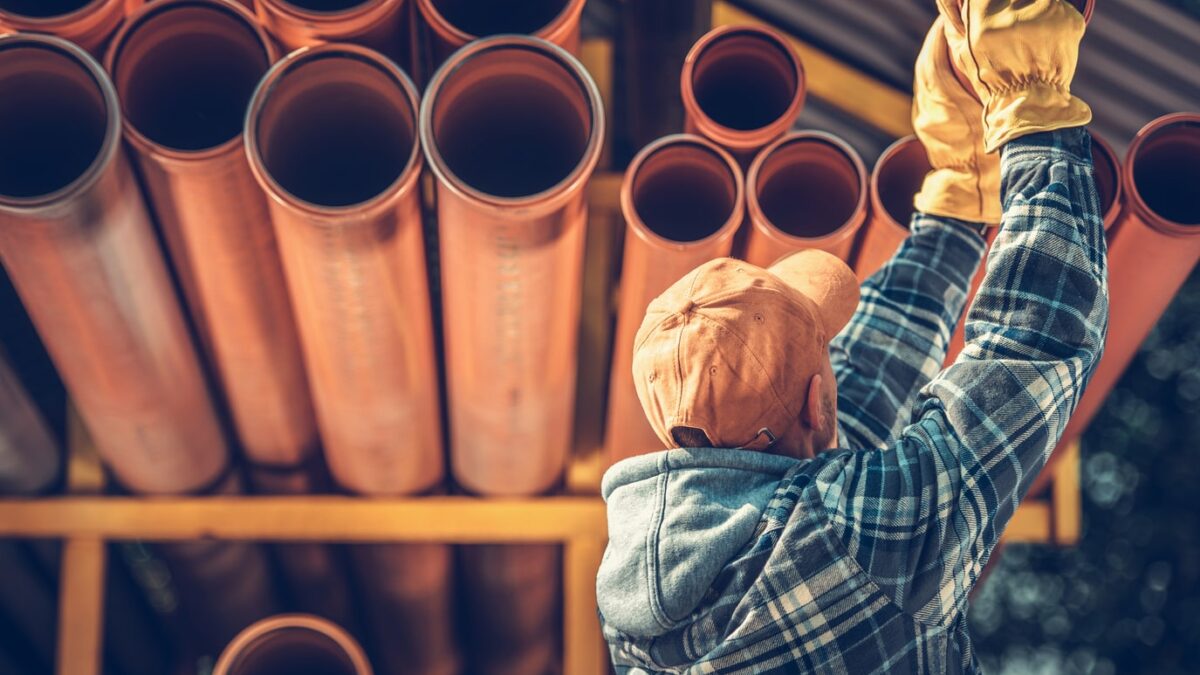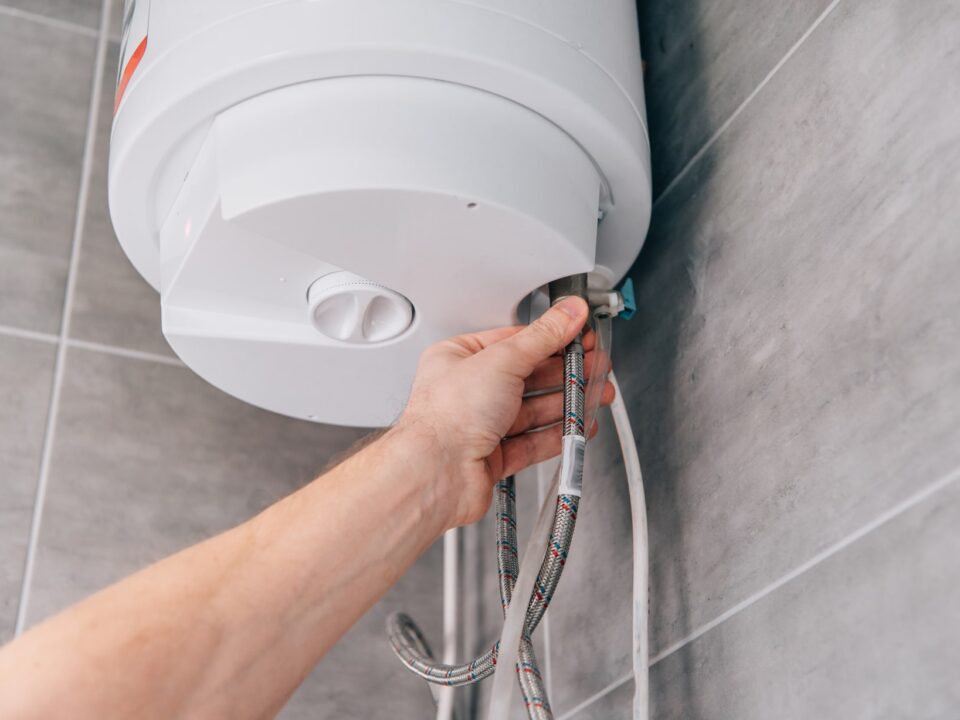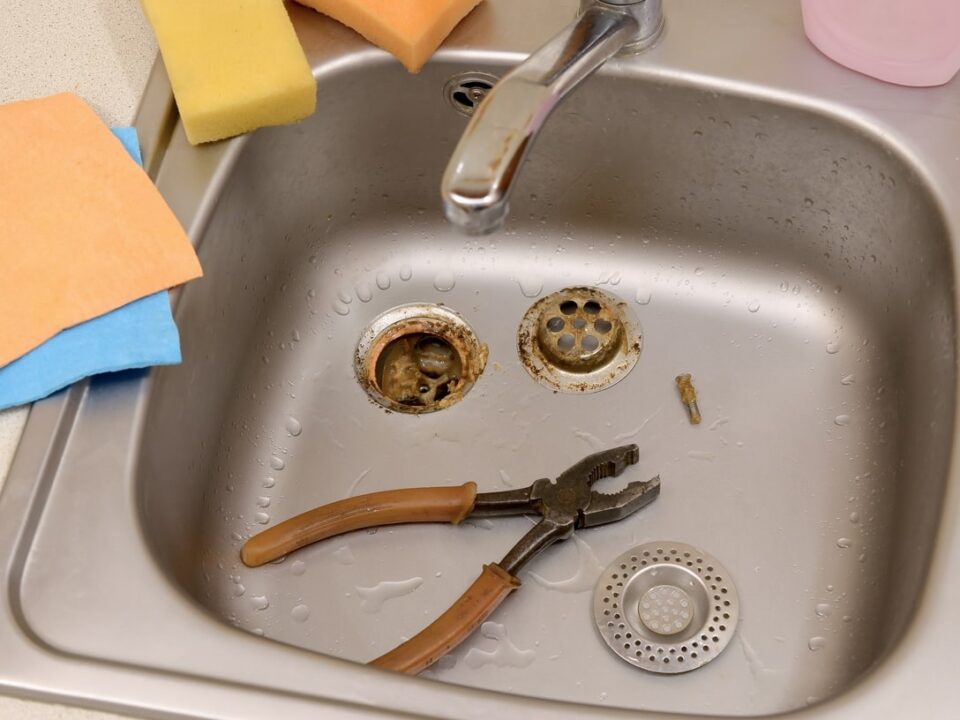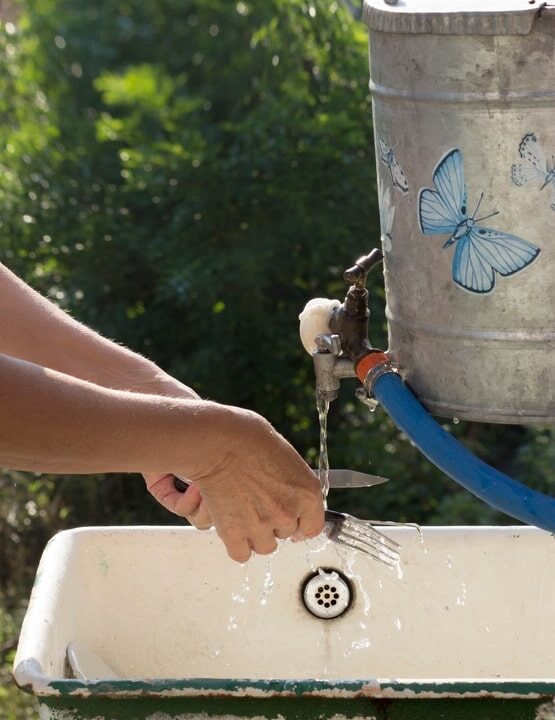
Garbage Disposal Troubles: What to Do When Your Disposal Only Hums.
January 3, 2024
Guide to Fixing Noisy Garbage Disposals: Is Your Disposal Humming But Not Working? Here’s Why.
February 23, 2024Are you aware of the importance of knowing the lifespan of pipes in Florida? Factors such as climate, water quality, and soil conditions can greatly affect how long your pipes will last. In this article by Babe’s Plumbing, Inc. & Fire Sprinklers, we will discuss the types of pipes commonly used in Florida, including copper and polybutylene pipes.
Learn about the average lifespan of these pipes, signs of aging, maintenance tips, and when it’s time to replace them. Stay tuned to find out more!
The Importance of Knowing Pipe Lifespan
Understanding the lifespan of pipes is crucial for maintaining a reliable plumbing system in Florida. Proper knowledge about the durability and longevity of different piping materials can help homeowners and professionals make informed decisions regarding maintenance and replacements.
It is essential to recognize that the lifespan of pipes varies depending on the material used for construction. For instance, copper pipes are known for their longevity and can last up to 50 years, while PVC pipes have a lifespan of about 25-40 years. By understanding these differences, individuals can plan ahead for necessary repairs or upgrades.
Being aware of the lifespan of pipes also plays a significant role in plumbing installations. Incorporating newer, longer-lasting materials can enhance the overall efficiency and sustainability of plumbing systems, ultimately reducing the need for frequent repairs and replacements.
Factors Affecting Pipe Lifespan in Florida
Several factors influence the lifespan of pipes in Florida, including the quality of the water supply, corrosion levels, and the choice of piping materials. Understanding these factors is essential for addressing common plumbing issues and ensuring the longevity of the plumbing system.
Water quality plays a significant role in affecting the durability of pipes over time. High levels of minerals or contaminants in the water can accelerate corrosion, leading to leaks and damage. The choice of piping materials such as copper, PVC, or galvanized steel can impact how well the pipes withstand corrosion and other environmental factors.
Regular plumbing maintenance services, including inspections for leaks, blockages, and wear, are crucial for detecting and addressing potential issues early on to prevent costly repairs and ensure a reliable plumbing system.
Climate
The climate in Florida plays a significant role in determining the lifespan of pipes used in residential plumbing infrastructure. The unique weather conditions in Florida can impact the durability and performance of plumbing systems, necessitating advanced plumbing technology solutions.
With high humidity levels and intense heat being common in Florida, pipes are susceptible to corrosion and deterioration over time. This can lead to leaks, burst pipes, and water damage within homes, causing inconvenience and costly repairs. Innovative plumbing technologies such as corrosion-resistant materials and advanced leak detection systems are crucial in combating these climate-related plumbing issues. By incorporating these cutting-edge solutions, homeowners in Florida can enhance the longevity and efficiency of their plumbing systems, ensuring a more resilient infrastructure that can withstand the challenges posed by the state’s climate.
Water Quality
The quality of water in Florida directly impacts the lifespan of pipes, influencing maintenance costs and adherence to plumbing standards. Understanding water quality issues is essential for preserving the integrity of plumbing systems and managing overall plumbing expenses.
High levels of acidity or alkalinity in the water can corrode pipes faster, leading to premature deterioration and increased repair costs. Contaminants such as minerals, sediment, or bacteria in the water can clog pipes and reduce flow efficiency.
To ensure the longevity and efficiency of plumbing systems, it is crucial to regularly test and treat water quality. Implementing filtration systems, water softeners, and regular maintenance checks can help mitigate potential damage and ensure compliance with plumbing standards, ultimately saving homeowners from unexpected plumbing expenses.
Soil Conditions
Soil conditions in Florida can significantly impact the lifespan of pipes used in construction projects, influencing the selection of appropriate pipe materials. Understanding the soil composition and its effects on piping systems is crucial for ensuring the longevity of plumbing infrastructure.
- Different types of soil, such as sandy soil, expansive clay, or loamy soil, can exert varying levels of pressure and corrosive effects on pipes, affecting their durability over time. For instance, clay soils with high moisture content can pose a risk of pipe deformation or cracking due to swelling and shrinking cycles.
- It is vital to consider factors like acidity, compaction, and drainage characteristics of the soil when choosing suitable pipe materials. Engineering solutions like proper backfilling techniques, corrosion-resistant coatings, or reinforced materials can help mitigate soil-related challenges and enhance the reliability of underground piping systems.
Types of Pipes Used in Florida
In Florida, two common types of pipes used in plumbing are copper pipes and polybutylene pipes. Each material has unique characteristics that impact the quality and performance of plumbing systems in residential and commercial settings.
- Copper pipes have long been favored for their durability, corrosion resistance, and ability to handle high pressures, making them ideal for both hot and cold water supply lines.
- On the other hand, polybutylene pipes, known for their flexibility and ease of installation, are often chosen for their cost-effectiveness and resistance to freezing.
While copper pipes are widely used for their longevity and reliability in various plumbing applications, polybutylene pipes are gaining popularity for their versatility and compatibility with certain types of water.
Copper Pipes
Copper pipes are a popular choice in Florida due to their durability and longevity, making them ideal for plumbing repair and maintenance. Understanding the lifespan of copper pipes is essential for addressing plumbing emergencies and ensuring reliable water distribution.
Compared to other materials, copper pipes have a longer lifespan, often lasting for decades without the need for frequent repairs. Their resistance to corrosion and external elements makes them a reliable option for homeowners in Florida, especially in areas prone to high humidity and intense weather conditions.
In case of a plumbing emergency, having copper pipes can reduce the risk of sudden leaks or bursts, providing peace of mind and minimizing potential damage to the property. When repairing copper pipes, it’s important to use compatible materials and techniques to ensure a lasting solution.
Polybutylene Pipes
Polybutylene pipes have been widely used in Florida for plumbing upgrades, offering cost-effective solutions and reliable performance. Understanding the longevity of polybutylene pipes is essential for conducting thorough plumbing inspections and ensuring long-term plumbing sustainability.
One of the key advantages of polybutylene pipes is their corrosion resistance, making them ideal for the humid and hot climate of Florida. This durability enables them to withstand harsh weather conditions, reducing the likelihood of leaks and damages. Polybutylene pipes are easy to install and maintain, simplifying the plumbing upgrade process for homeowners. By conducting regular inspections, homeowners can identify any potential issues early on and address them promptly, thus prolonging the lifespan of the plumbing system and promoting sustainable plumbing practices.
The Average Lifespan of Copper Pipes in Florida
Copper pipes in Florida have an average lifespan that can be influenced by various factors. Recognizing the signs of aging in copper pipes and implementing proper maintenance tips are essential for maximizing the longevity of these durable pipe materials.
- Factors such as water quality, temperature fluctuations, and installation techniques can impact the lifespan of copper pipes in Florida.
- Common signs of aging to watch out for include discoloration, leaks, and reduced water pressure.
- To extend the durability of these pipes, regular inspections, proper insulation to prevent freezing, and proactive leak repairs are recommended maintenance practices.
- Choosing high-quality copper materials for pipe replacements or installations can significantly reduce the chances of premature deterioration, enhancing the overall performance and longevity of the plumbing system.
Signs of Aging in Copper Pipes
Identifying signs of aging in copper pipes is crucial for preemptive plumbing solutions and timely project interventions in Florida. Recognizing these indicators early can help prevent plumbing problems and ensure the efficient operation of water supply systems.
One common sign of aging in copper pipes specific to Florida is corrosion, often indicated by green or blue stains around fittings or connections. Reduced water pressure, frequent leaks, and discolored water are telltale signs of aging pipes.
It is important to address these issues promptly to avoid more extensive damage, such as burst pipes or water contamination. When dealing with aging-related problems in plumbing projects, it’s recommended to consult a professional plumber to conduct thorough inspections, consider re-piping with newer materials, or implement corrosion-resistant coatings to prolong the lifespan of the system.
Maintenance Tips for Copper Pipes
Implementing effective maintenance tips is essential for preserving the integrity and performance of copper pipes in Florida. Engaging plumbing specialists or contractors for routine maintenance can help homeowners avoid costly repairs and ensure the longevity of their plumbing systems.
In the humid climate of Florida, where copper pipes are prone to corrosion due to the high levels of moisture in the air, it is crucial to regularly inspect and clean the pipes to prevent buildup.
One practical tip is to check for any signs of leaks, discoloration, or unusual odors, as these can indicate underlying issues.
Scheduling annual professional inspections with plumbing specialists can identify problems early on and prevent major disruptions.
The Average Lifespan of Polybutylene Pipes in Florida
Polybutylene pipes in Florida have a specific average lifespan affected by various factors. Recognizing the signs of aging in polybutylene pipes and adhering to maintenance tips are essential for ensuring the extended longevity of these versatile pipe materials.
Over time, polybutylene pipes may exhibit signs of aging such as discoloration, leaks, or a noticeable drop in water pressure. If you notice any of these indicators, it is crucial to address them promptly to prevent potential water damage and costly repairs.
Regularly inspecting the pipes for signs of wear and tear, such as brittle or flaking surfaces, and scheduling routine maintenance checks can help prolong their lifespan. Investing in high-quality, durable pipe materials can significantly reduce the risk of premature aging and ensure a reliable plumbing system for years to come.
Signs of Aging in Polybutylene Pipes
Recognizing signs of aging in polybutylene pipes is crucial for tackling potential plumbing issues and safeguarding infrastructure integrity in Florida. Early detection of these signs can prevent costly repairs and maintain the efficiency of water distribution systems.
Common indicators of aging in polybutylene pipes specific to Florida include:
- Discoloration
- A decrease in water pressure
- Frequent leaks
- The presence of corrosion on fittings
These signs may signal deterioration of the pipes, which can lead to more severe issues if left unaddressed. Homeowners and property managers need to monitor these signs closely and seek professional assistance promptly to ensure the longevity and functionality of their plumbing systems. By investing in regular inspections and proactive maintenance measures, such as pipe replacement and sealing, individuals can significantly extend the lifespan of their infrastructure and prevent potential water damage incidents.
Maintenance Tips for Polybutylene Pipes
Adhering to maintenance tips is essential for optimizing the performance and longevity of polybutylene pipes in Florida. Following established plumbing guidelines and regulations for water infrastructure maintenance can help prevent unexpected disruptions and ensure the reliability of plumbing systems.
Regularly inspecting polybutylene pipes for signs of wear, corrosion, or leaks is crucial in Florida’s tropical climate to avoid potential water damage. It is recommended to schedule professional inspections at least once a year to catch any issues early. Keeping the pipes well-insulated can prevent them from becoming brittle due to prolonged exposure to the sun’s heat. Properly maintaining these pipes not only safeguards your property but also contributes to the overall sustainability of the water infrastructure in the region.
Replacing Old Pipes: When and How?
Knowing when and how to replace old pipes is a critical decision for homeowners in Florida. Engaging professional plumbing specialists or contractors for pipe replacement ensures the safe and efficient upgrade of plumbing systems, enhancing overall water distribution quality.
By opting for skilled professionals, individuals can benefit from expert assessments to determine the scope of pipe replacement needed and the best materials to use in Florida’s specific climate conditions. Timing is also crucial, as older pipes may pose risks of leaks, bursts, or contamination. Through proper planning and execution, homeowners can avoid potential water damage and health hazards associated with deteriorating pipes, ultimately increasing the value and reliability of their property.
Signs of Pipe Failure
Recognizing signs of pipe failure is crucial for preemptive action and leveraging plumbing advancements in Florida. Identifying these indicators early can help prevent water distribution disruptions and ensure the seamless operation of plumbing systems.
Common signs of pipe failure in Florida include low water pressure, discolored water, foul odors, and unexplained spikes in water bills. Quality pipe materials such as corrosion-resistant copper or PVC can significantly reduce the risk of failures.
With advancements in plumbing technology, professionals can now utilize tools like leak detection cameras and pipe inspection robots to pinpoint issues before they escalate. This proactive approach not only saves homeowners from costly repairs but also minimizes water wastage and promotes environmental sustainability.
Hiring a Professional Plumber
Engaging a professional plumber for pipe maintenance and replacement is paramount for ensuring optimal plumbing performance in Florida.
These professionals possess the necessary skills and tools to detect and address issues early on, preventing costly repairs and potential water damage.
By following plumbing best practices, such as regular inspections, proper sealing of joints, and using high-quality materials, homeowners can avoid common plumbing problems.
Seeking expert guidance when considering plumbing upgrades, like installing energy-efficient fixtures or updating piping systems, can result in long-term cost savings and environmental benefits.




